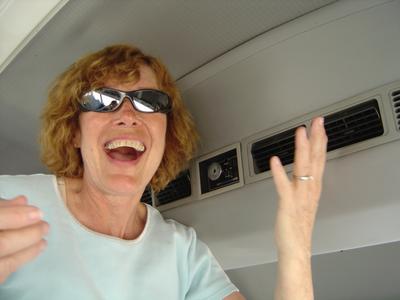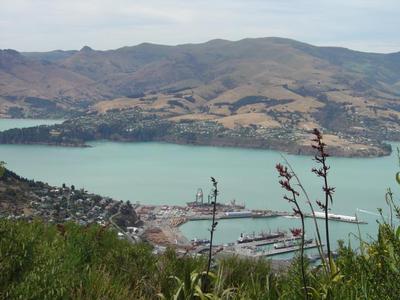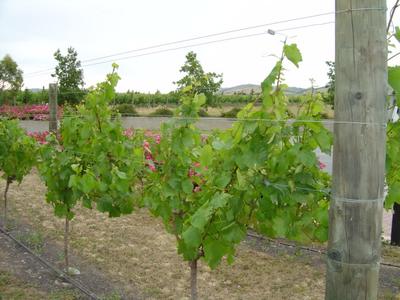20 December, 2003
Adjusting To Life Off The Ice
Just as it took a bit of getting used to living in
Antarctica, I'm finding it just as odd to adjust after
returning. Who would have thought that only after
being there a little over a month, the "regular" world
could seem so foreign.
The first thing one notices upon landing is the
increased awareness of all your senses. After not
smelling much of anything, your nose is stimulated
with the earthy aroma of dirt and sweet smell of
flowers. It's spring/summer in Christchurch. The
flowers are in full bloom, creating a delightful
welcome for anyone who has just left the ice. After
seeing only white and brown, it is refreshing to see
green plants and bright colors. It was also great to
see and hear wildlife. I took notice of the chirping
birds, melted at the sight of a wagging tailed dog,
and paid close attention to an insect crawling across
the concrete. While there are many things that have
been a delight to experience other things have been
slightly unnerving.
Although the warm air was refreshing, Barb and I
trouble thermo-regulating. One minute we were hot, the
next minute cold. The Antarctic temperature does not
seem to fluctuate as often as the warm days and cool
nights of Christchurch. The increase in humidity is
also a major factor. I observed darkness for the first
time in thirty-six days. While I first found it odd to
be greeted with sunshine after a late evening of
working in the lab, I had now come to expect it. As I
watched dusk turn into darkness I became a little
restless not wanting the sun to disappear. I can't
imagine how my over-wintering McMurdo friends adjust
to the sun slowing disappearing as the Antarctic fall
slides into winter.
After a month of no traffic, TV, ringing phones, news,
deadlines, commercials etc, the world now seems a bit
chaotic and noisy. I found myself wanting to turn off
radios and tell the noisy bar hoppers outside my hotel
window to quiet down. In our trainings, they warned
us of the need to decompress after leaving the ice and
I now understand why. The US Antarctic Program
requires that that all employees have at least a 90
day break between two consecutive winters, and no one
is allowed to stay for a more than a period of18
months. I guess they too understand the dangers of
living too long in a bubble.
Do you think the US Antarctic program should have this
requirement, why or why not? Discuss this with your
classmates.

1. The sundial on the footbridge to Crary. What time is it in this picture? Compare the number of hours of daylight at various latitudes through out the year. What is the relationship between number of hours of daylight and latitude? (Note: photo was borrowed from TEA teacher Andy Sajor) --

2. Barb enjoying the cool air of our shuttle bus's air conditioner. Besides temperature, what other major atmospheric condition has increased dramatically and is contributing to us feeling so hot? (Hint: when this increases, less moisture from our body can evaporate resulting in us feeling warmer) --

3. New Zealand sheep seen grazing. As you can see they have just been sheered. Why would this be done during this time of year? (Hint: what season is it in Christchurch? --

4. Barb and I took a gondola ride to the summit of Port Hills to see the city of Lyttelton Harbour. Isn't it beautiful? --

5. A New Zealand vineyard. New Zealand is known for it's fine wines. Look up the latitude of Christchurch and compare it with areas of similar latitude in the Northern hemisphere that are also known for making wine. Compare the soil and climate of these areas. --
Contact the TEA in the field at
.
If you cannot connect through your browser, copy the
TEA's e-mail address in the "To:" line of
your favorite e-mail package.
|
